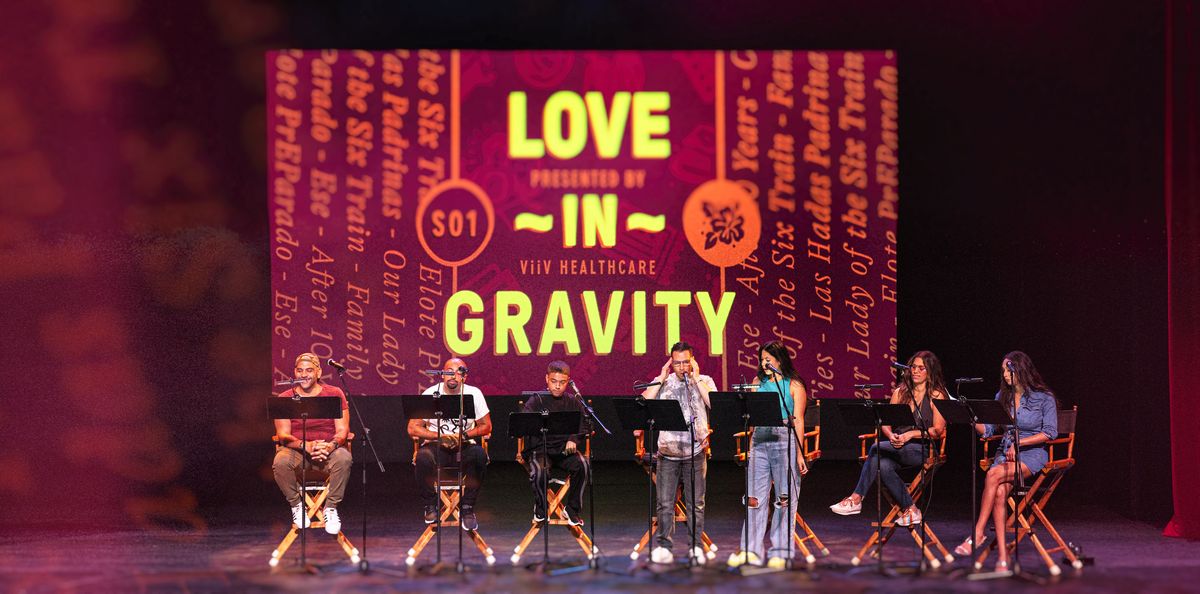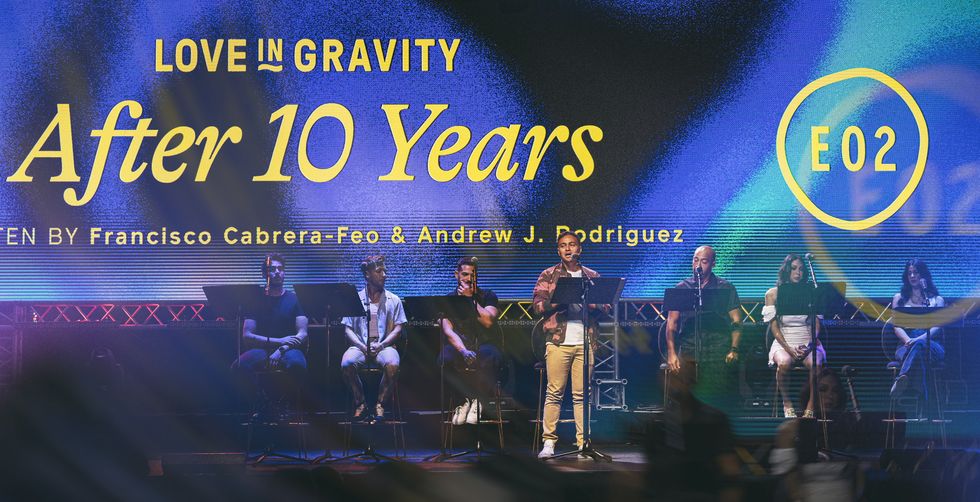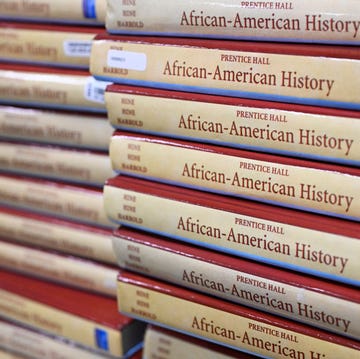In 1998, Pedro Julio Serrano became the first openly LGBTQ+ and HIV-positive person to run for elected office in Puerto Rico. Vying for a seat in the United States territory’s House of Representatives, he was ultimately forced to run as an independent due to homophobia within his party. “Later, I withdrew my candidacy, because I received death threats,” says Serrano, a longtime human rights activist who now works as the director of public affairs at Waves Ahead, a nonprofit that provides aid to Puerto Rico’s most vulnerable communities. “The brake cables on my car were cut. Someone graffitied the door of my apartment. It made me move to New York City in the United States, because I didn’t feel safe.”
While much has been achieved over the past 25-plus years when it comes to quashing sex-based discrimination, the HIV epidemic—and the stigmas surrounding it—continue to disproportionally touch minority and disenfranchised groups including queer Latinx communities. According to a report by the Centers for Disease Control and Prevention, in 2019, Hispanic/Latino people made up 29 percent of the new HIV diagnoses in the United States and dependent areas, despite making up only 19 percent of the population overall. What’s more, cultural factors like the valuation of machismo prevent individuals from disclosing their sexuality and HIV status, and seeking testing, treatment, and support.
In an attempt to speak directly to Latinx communities, ViiV Healthcare, the only pharmaceutical company solely focused on HIV prevention, teamed up with entertainment studio Harley & Co. on a new podcast that not only provides information surrounding testing and treatment options—including where to obtain PrEP, a widely available medication that, when taken correctly, can help prevent contracting HIV—but also crucially aims to generate empathy and acceptance from those not directly affected by the virus.
More From Harper's BAZAAR

Titled Love in Gravity, the scripted series includes six fictional stories from gay, bisexual, and queer Latinx and Afro-Latinx writers that feature characters living with HIV. Thoughtful and nuanced, each portrait aims to represent individuals and narratives typically left out of mainstream media, and spark conversations about HIV that might otherwise feel uncomfortable to those living with it, and their family and friends.
In one episode, tensions rise when soft-spoken Michel brings his first boyfriend home to a Mexican family reunion; in another, a man named Andres is forced to discuss his open relationship with his mother when she discovers his PrEP. “When you see yourself portrayed in a podcast, a program, or a show, it tells you that you matter, that your life matters, and that your story matters,” says Serrano, who in 2003 founded Puerto Rico Para Todes, a nonprofit LGBTTIQ+ and social justice advocacy organization. “This podcast also helps educate a broad array of people that might not have ever interacted with someone who’s openly living with HIV.”
Adds Sarah Hall, the podcast’s executive producer, “It really feels like the work of this moment is to find ourselves in each other, and stories are one of our most powerful tools for doing that. They are the doors and the windows into experience, they help us to cultivate solidarity, they make the unknown into something familiar, and all of that helps us to see ourselves and each other differently.”
Among the show’s impressive roster of collaborators is writer John Paul Brammer, who pens the queer advice column ¡Hola Papi! and is the author of the memoir ¡Hola Papi! How to Come Out in a Walmart Parking Lot and Other Life Lessons; Glee’s Kevin McHale; and Robin de Jesús, a three-time Tony-winning actor, best known for his Broadway roles in In the Heights, La Cage aux Folles, and Rent, as well as for his part in Lin-Manuel Miranda’s 2021 musical drama film, tick, tick… BOOM! “The podcast is such a great tool, because it’s entertainment but also serves a very specific community need,” de Jesús says.
In October, de Jesús and other Love in Gravity cast members performed select episodes live at the United States Conference on HIV/AIDS as one of ViiV’s many cultural initiatives developed to speak to communities disproportionately affected by HIV. Held in San Juan, the event aimed to highlight the impact of HIV in Latinx communities specifically, with a focus on Puerto Rico. “What I felt more than anything was pride,” de Jesús, who is of Puerto Rican descent, says. “There’s something different about performing for people face-to-face; ViiV recognizes the importance of community engagement.”
While new HIV diagnoses are decreasing in Puerto Rico, ViiV reports that nearly one quarter of newly diagnosed people meet the criteria for an AIDS diagnosis. (AIDS is the late stage of HIV infection that occurs when the body's immune system is badly damaged because of the virus.) What’s more, the territory has the worst PrEP-to-need ratio in the United States, meaning viral suppressant therapies are not reaching those in need of treatment. While a lack of funding, government prioritization—as a United States territory, Puerto Rico does not have voting representation in American Congress—and a decentralized and understaffed health care system are partly to blame, the role of recurring natural disasters is also paramount.
According to research conducted by the Columbia University Mailman School of Public Health, viral suppression decreased from 71 percent to 65 percent as a result of the impacts of Hurricane Maria in 2017, including transportation barriers, loss of electricity, the destruction of medical facilities, and a lack of basic supplies. Access to care was also reduced by 22 percent. Over the last four years alone, Puerto Rico has also experienced a string of deadly earthquakes, the COVID-19 pandemic, the monkeypox outbreak, and, most recently, Hurricane Fiona. “Crisis after crisis only compounds the problem and doesn’t allow for people to make sure that they can access the services and make sure that they maintain their suppression,” Serrano says.
When it comes to supporting Puerto Rico, both Serrano and de Jesús stress how important solidarity and investment is. “Americans need to invest in Puerto Rico and understand our goals, aspirations, and our history in order to make sure they do it correctly,” says Serrano, emphasizing the importance of support from Puerto Ricans living Stateside. “And it cannot just be when tragedy strikes,” he continues. “We do great things with little resources and with our hands tied behind our backs. For example, there are a lot of states that do not have a bill of rights for people living with HIV, but Puerto Rico does. If America starts looking at us, it might learn something.”
“When you’re a colony, you’re consistently framed as the one that’s needing help when in actuality, the U.S. has taken a lot and not given,” de Jesús adds. “The first step towards solidarity is learning more about the history between the U.S. and Puerto Rico, visiting Puerto Rico, being respectful tourists, and providing for the local economies.”
Ultimately, ViiV’s grassroots approach to improving the HIV crisis in Puerto Rico and within other Latinx communities is what sets the company apart from others. As Marc Meachem, ViiV's head of U.S. external affairs, explains, representation of the diverse communities impacted by HIV is reflected in their culture work, the diversity of their clinical trials, and beyond. For example, Meachem shares that through the organization’s Positive Action for Latinx Men initiative, ViiV is “engaging with local communities across [Puerto Rico] and funding critical work of local organizations to expand their reach.”
“The work they are doing is crucial, because they come to Puerto Rico, they listen to us, they work with us, they hire us,” Serrano says. “They make sure that our voices are heard and that we’re taken care of.”













